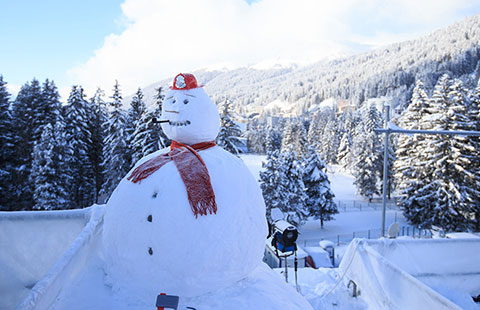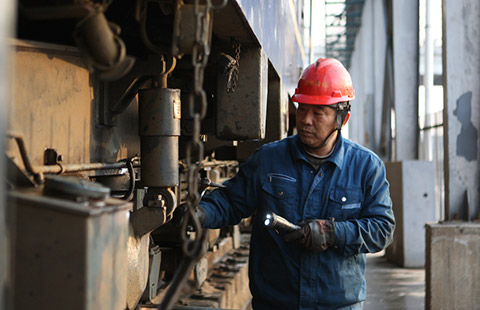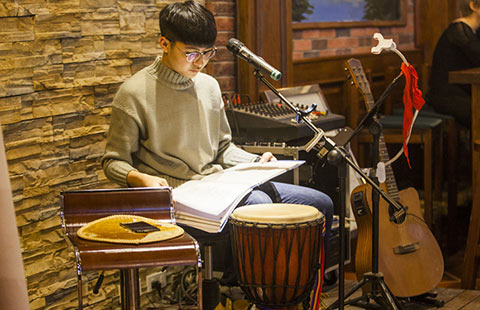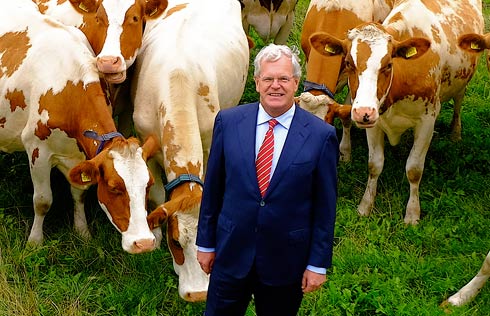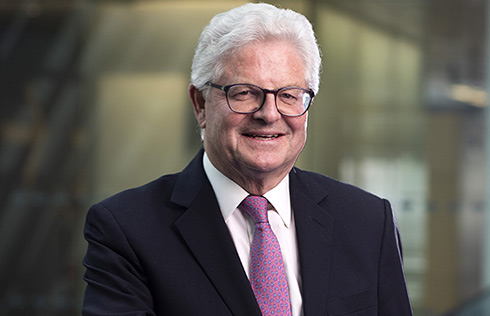Full text: Report on China's central, local budgets
The appropriation for energy conservation and environmental protection is 210.127 billion yuan, an increase of 18.8% over last year's budgeted figure and 5.1% over the actual figure. The disparity between the budgeted and actual figures for last year was mainly due to a one-off additional investment in improving the energy efficiency of existing buildings and laying sewers to complement urban sewage treatment facilities when we adjusted the spending structure during budget implementation last year. Support for controlling air pollution will be increased to make innovations in mechanisms for comprehensive treatment, clearly define responsibilities, and refine related rules and regulations. We will lend impetus to building key energy conservation projects, help spread the use of advanced environmentally-friendly products, and boost the development of the environmental services industry. Efforts to promote energy-saving products that benefit the people will be intensified, and the work on spreading the use of five categories of energy-efficient industrial products, including electric motors, draught fans, and water pumps, will be accelerated. We will promote the prevention and control of water pollution in key watersheds as well as the construction and operation of sewer networks, help strengthen ecological conservation in lakes with good water quality, and encourage efforts to resolve the issue of safe drinking water. Demonstrations of comprehensive prevention and control of heavy metal pollution will be carried out, and another round of environmental cleanup in contiguous rural areas will be launched. We will strengthen development of national demonstration centers for recovering mineral resources from city waste, promote harmless disposal of kitchen waste and recovery of resources from it, and extend trials on upgrading industrial parks to make their operations more circular. We will provide funds to continue implementing the second phase of the project to protect virgin forests and consolidate past achievements in returning cultivated land to forests while increasing subsidies for some of these projects. We will support R&D on and the industrial application of new-energy vehicle technologies and accelerate the development of new, renewable, and clean energy.
The appropriation for transportation is 397.386 billion yuan, up 0.1%. These funds will be used to support construction of public transportation infrastructure, continue to provide fuel subsidies for public transportation and other public service industries, and provide subsidies to local governments to phase out tolls on government-financed Grade II highways.
The appropriation for national defense is 720.168 billion yuan, an increase of 10.7%. Funds will be used to support efforts to make the armed forces more mechanized and information-based, improve the working and living conditions of service personnel, and strengthen national defense and the military so as to safeguard national security.
The appropriation for public security is 202.937 billion yuan, up 7.9%. This will be used to improve the mechanism for ensuring funding for primary-level procuratorial, judicial, and public security departments, strengthen the capacity of these departments in poor areas, and support the provision of legal assistance.
Expenditure on general public services will come to 135.058 billion yuan, up 1.5%. The main reason for this relatively small increase is the need to abide by relevant regulations of the central leadership and strictly limit regular spending as well as overheads and project outlays of administrative bodies.
3) Central government tax rebates and transfer payments to local governments
Central government tax rebates and transfer payments to local governments will reach 4.8857 trillion yuan, up 7.7%. Of this amount, general transfer payments will account for 2.453835 trillion yuan, up 14.3%, and special transfer payments will account for 1.926586 trillion yuan, up 2.5%. General transfer payments designed to equalize access to basic public services will reach 981.225 billion yuan, up 14.3%, which includes 152.5 billion yuan in awards and subsidies for implementing the mechanism to ensure basic funding for county-level governments, up 41.9%; 42.3 billion yuan for key ecological zones, up 14%; and 31.825 billion yuan in awards to major grain-producing counties, up 15%. General transfer payments to old revolutionary base areas, ethnic minority areas, and border areas will total 62.19 billion yuan, up 11.2%.
4) Overview of the central budget stabilization fund
The central budget stabilization fund had a balance of 106.978 billion yuan after the transfer of 270 billion yuan to the budget at the beginning of 2012, and it was replenished with surplus revenue of 18.415 billion yuan during implementation of the budget, leaving a balance of 125.393 billion yuan at the end of the year. Following the transfer of 100 billion yuan to the budget in early 2013, 25.393 billion yuan remains.
An analysis of the above expenditures shows that in 2013 the central government will spend a total of 1.57125 trillion yuan, an increase of 13.5% over the budgeted figure and 9.6% over the actual figure, in areas that directly affect people's lives, namely education, medical and health care, social security, employment, government-subsidized housing, and culture. Central government spending on public transportation, energy conservation, environmental protection, community affairs, and other areas closely related to people's lives will amount to 1.715003 trillion yuan. Appropriations from the central budget for agriculture, rural areas, and farmers will total 1.3799 trillion yuan, an increase of 11.4%. This figure consists of 542.683 billion yuan used to support agricultural production; 170.055 billion yuan in direct subsidies to grain growers, general subsidies for purchasing agricultural supplies, and subsidies for purchasing superior crop varieties and agricultural machinery; 605.112 billion yuan for the development of rural education, health care, and other social programs; and 62.05 billion yuan for expenses related to stockpiling agricultural products and associated interest payments. Most central government tax rebates and general transfer payments to local governments will also be used to maintain and improve the quality of people's lives and benefit agriculture, rural areas, and farmers.
It should be noted that spending on improving quality of life and on agriculture, rural areas, and farmers does not constitute a single budgetary item. For ease of deliberation, we have combined all spending items concerned, so there is some overlap in the statement of expenditures.





